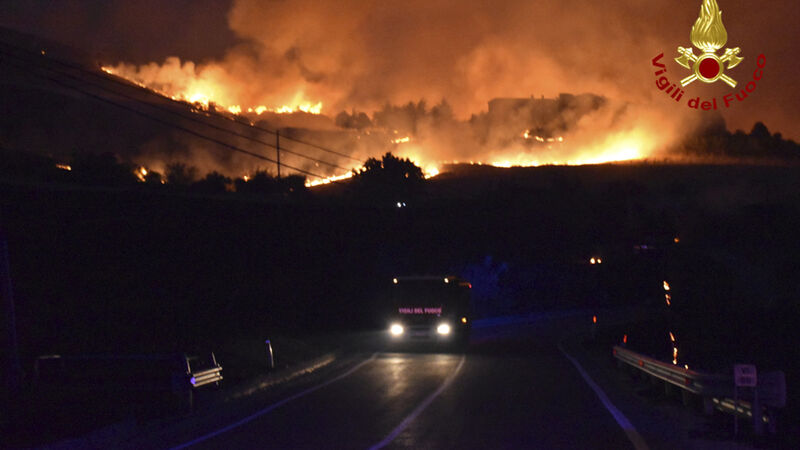EU urges world's largest economies to set tougher climate change targets

A view of a fire near Petralia Soprana, in the upper Madonie, near Palermo, Sicily, Italy, as many wildfires continue plaguing the region. Picture: Italian Firefighters via AP
A top European Union diplomat has called on the worlds largest economies to set tougher targets on climate change before the 2021 United Nations Climate Change Conference in November.
In an EEAS blog post, EU foreign policy chief Josep Borrell said that all major economies must take "ambitious enough, measurable and verifiable 2030 targets and climate neutrality commitments."










